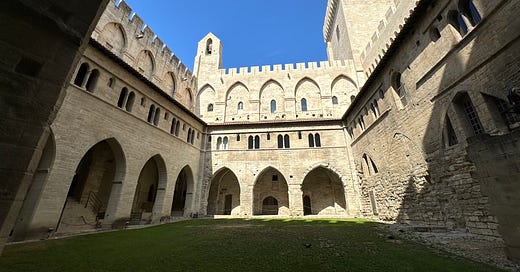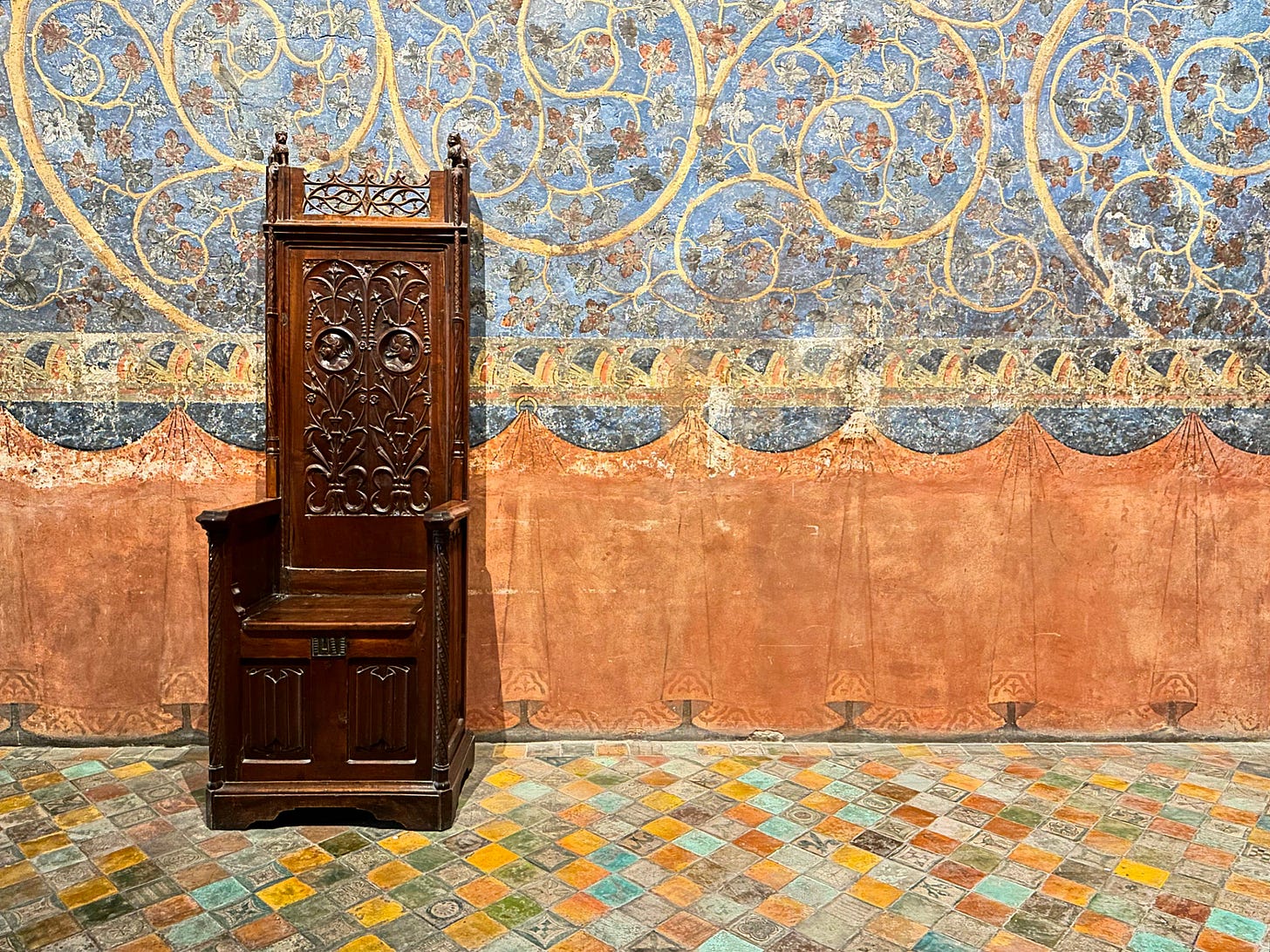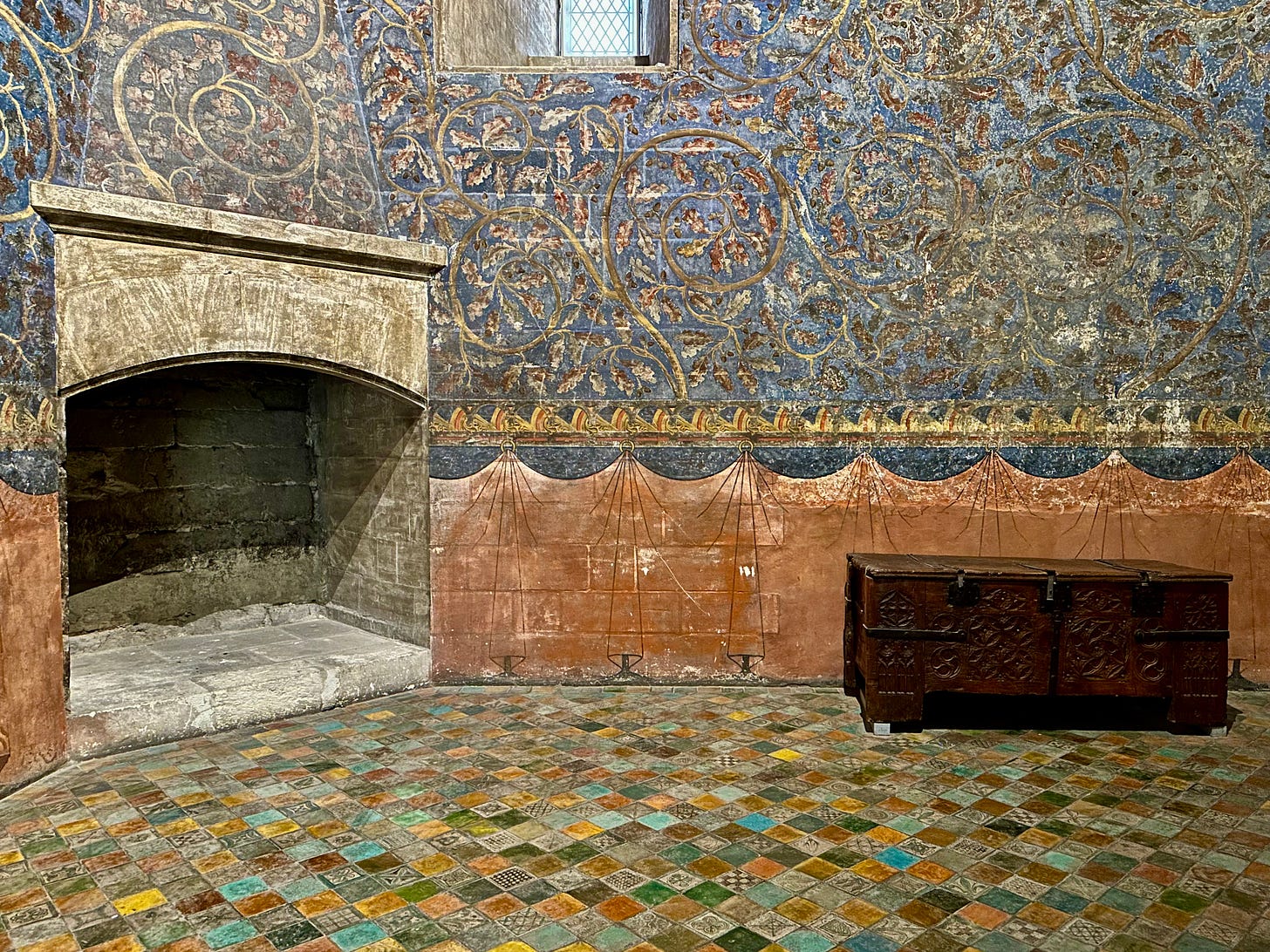Quid est enim aliud omnis historia, quam Romana laus
What else, then, is all history if not the praise of Rome?
Petrarch, Invectiva contra cuiusdam anonimi Galli calumnia (Invective against the calumny of an anonymous Frenchman)
There are a thousand years or so of history which, rather absurdly, we usually dismiss in two words: we speak of the Middle Ages as if a millennium were a single entity. Its parameters are amorphous and hazy but—because humans like taxonomy—in the context of Rome we can think of the fall of Empire as the point of departure (though just as the city wasn’t built in a day, neither did it fall in a day) and the definitive return of the papacy from Avignon in the early fifteenth century as a point of conclusion.
Medieval folk didn’t, of course, know that they were trudging through a quagmire of history now synonymous with muddled violence, poor dentistry, and plague, nor did the vast majority of those living in the Renaissance (somewhat disconcertingly, for the most part, equally beset by muddled violence, poor dentistry, and plague) know that they were basking in the sunlit uplands of a cultural rebirth.
One of the first figures who speaks of something approaching a “Dark Age” is Francesco Petrarca who, in a letter to Agapito Colonna, used the word tenebrae (shadows) to describe his benighted era with disdain.
Keep reading with a 7-day free trial
Subscribe to Understanding Rome's Newsletter to keep reading this post and get 7 days of free access to the full post archives.






